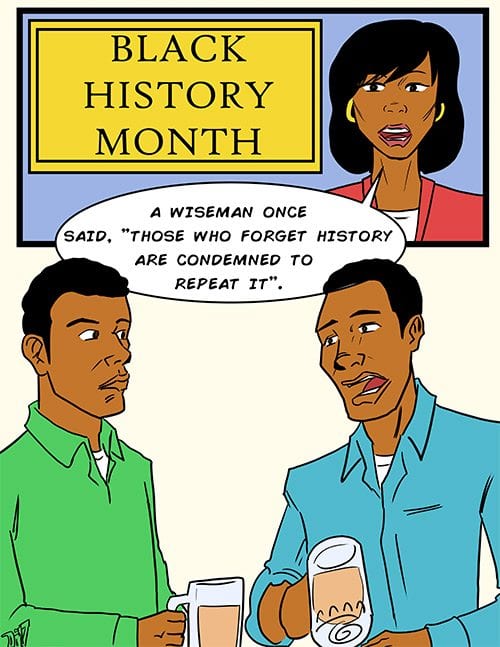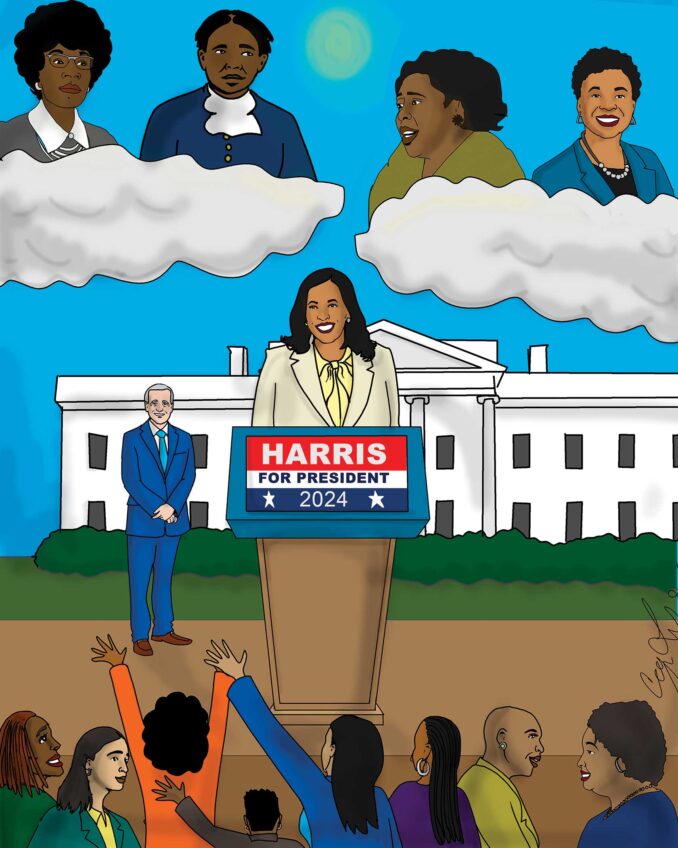
As the annual Black History Month draws to a close, it is well to remember George Santayana’s aphorism, “Those who cannot remember the past are condemned to repeat it.” After Barack Obama’s ascension to the presidency, there is a strong desire to conclude that a non-racial America has evolved. Indeed, the great legacy of black achievements for the benefit of the nation warrants the status of equality for black citizens. Every February African Americans note their contributions, but it is painful to recollect in detail the infliction suffered in generations of racial abuse.
It is interesting to note that Barack Obama was able to tally 39 percent of the white vote in 2012, while Hillary Clinton received only 37 percent of that vote in 2016. Perhaps that’s progress, but Donald Trump still won. The Republican strategy was to diminish the size of the black vote by gerrymandering districts and limiting the number of polling places and the number of days for early voting.
That is an old strategy. Powerful whites in the former Southern Confederacy moved aggressively to ban blacks from the voting booths. Ratification of the 13th Amendment in 1865 made slavery illegal, but it did not grant any special rights to former slaves. Until passage of the 14th Amendment 2.5 years later, blacks still lacked the federal right of citizenship. It still took another year and a half, until Feb. 8, 1870, for the 15th Amendment to provide blacks the right to vote that can be enforced by Congress.
One of the primary objectives of the Jim Crow era in the South was to terrorize blacks to prevent them from even thinking about the ballot. The war on disenfranchisement did not begin until the Civil Rights Act of 1957 was passed, primarily to wage a campaign to provide voting rights to blacks in the South. That act created the Civil Rights Division within the U.S. Department of Justice. Retired local judge Gordon A. Martin wrote a fascinating book entitled “Count Them One By One” about his involvement in the battle for voting rights for blacks in Mississippi.
That is the history that Santayana advises us not to forget. The nation is once again involved in a major campaign to diminish the impact of the black vote. With 13 percent of the electorate, a strong turnout for one candidate can influence the final result. In 2012, Obama got 93 percent of the black vote, and in 2016 Clinton tallied only 88 percent, but that is still a big number.
The current conservative strategy is two-pronged. One is similar to the objectives of the Jim Crow days — diminish the black vote by making it too difficult to vote. You do this by having registration at inconvenient times or places, or you require identification documentation that is difficult to obtain. A reduction in the number of polling places and voting days will also reduce the turnout for the elderly or working class voters.
Then a campaign of lies and dissembling will confuse citizens about the truth of political situations. For example, for years the conservatives have publicized a campaign against Obamacare. People believed it. But now that there is talk of rescinding the Affordable Care Act, people are up in arms.
So the battle never ends. African Americans must remain politically active to continue to thwart efforts to eliminate black progress and equality. If the vote for Clinton in Michigan, Wisconsin and North Carolina had been the same as the vote for Obama in 2012, America would now have its first woman president. Trump’s vote in those states was essentially the same as Mitt Romney’s in 2012.
Blacks and liberals have to remain vigilant.






